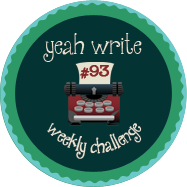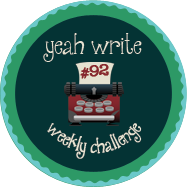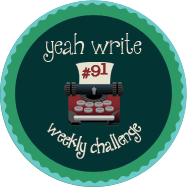A friend recently pointed me to this article about the professional responsibility and ethics that come into play when a healthcare professional is faced with treating a patient in a way that goes against their own beliefs. Since I'm a member of one of those professions, I thought I'd share my perspective.
When you commit yourself to a healthcare career, you don't have much control over what kinds of patients you will see. Yes, a doctor can choose to specialize in obstetrics or urology, and a nurse can choose to work at a retirement home because she doesn't like dealing with children. But you don't get to decide what kind of care your patients will get based on their politics, their religion, or their life choices. You can encourage a patient to quit smoking, but you can't give someone subpar care for their emphysema even if you feel, deep inside, that they brought it upon themselves.
Doctors take an oath to do no harm, and while I don't know if others in the healthcare professions do the same, I can say that the overwhelming majority of those I've known in those positions take immense pride in their work and treat all patients with great care and respect. Those who triage their patients by anything other than medical urgency quickly lose the respect of their peers. Or they lose their jobs.
That's why it bothers me when I read things like this, from Twitter right after the Boston Marathon suspect was taken to the hospital:
Now that the 2nd suspect is caught and in the hospital, what's preventing a Doctor/Nurse from injecting "go fuck yourself" serum?
Frankly, the very concept is offensive to me, and I think I speak for the vast majority of medical and allied health professionals. Of course the medical team isn't going to enjoy some vigilante justice and "accidentally" give him the wrong care to watch him die. And that's not just because so many people are watching, or because the police have instructed them to keep him alive. It's their job to keep him alive. Every single person who comes through those doors will be given 100% of their effort, because that's how a trauma emergency room works. It doesn't matter if you're a four-year-old who was hit by a car, or the drunk driver who hit him. You're a broken body, and they will do everything they can to put you back together.
I had a colleague who once told me that the lab he worked in years ago used to receive and test specimens from smaller medical facilities every day, because the smaller places didn't have labs of their own. When he found out that one of them was an abortion clinic, he refused to have anything to do with those specimens, saying that running the tests would go against his religious beliefs. He'd have had nothing at all to do with the actual abortion process, mind you. The specimens he would have been testing would have been for the women's blood counts and chemistries: tests no different from what you'd have done at your annual physical. Astonishingly, his coworkers and employer had no problem with his decision, and accommodated him. I couldn't help but wonder what would happen at our current employer if he was faced with a similar situation. We didn't deal with abortion clinics, but we did have several operating rooms and sometimes there were D&C's on the operating schedule - with no way to know whether they were being done after miscarriages or planned abortions, would he refuse to crossmatch blood for those patients if they hemorrhaged on the table? To be fair, I never saw him refuse any specimen while I worked with him, so maybe his attitudes had changed by then. I didn't probe further, because an ideological debate has a right time and a right place, and an evening shift in a busy laboratory is neither of those things.
The fact remains, though, that he did refuse care to patients based on a conflict between their decisions and his religious beliefs. It wasn't direct care, it wasn't emergency life-saving care, but it was still a massive breach of professionalism. And he got away with it. No disciplinary action, no reminder that a patient is a patient and a test is a test and you don't get to choose like that.
I'm equally appalled by pharmacists who refuse to dispense the legal, FDA-approved Plan B contraceptive pill despite the patient's valid prescription. Like my former coworker, they get away with it. As long as someone else can fill the prescription, they can keep their conscience clean. And I think that's bullshit. Pure, unadulterated bullshit. Your obligation as a pharmacist is to dispense medications to patients. You don't get to decide not to give out Plan B because you're opposed to the idea, just like you can't refuse someone their diabetes pills because you think they should be exercising more and eating better, and you don't want to be an enabler. If you want to be a pharmacist and you want to avoid ever having to give out contraceptives, go work in hospice care or geriatrics.
It's simple. You have an obligation, when you work in health care, to do your absolute best for each and every patient you interact with. If you're not able and willing to do that, because your personal beliefs get in the way, then you need to find a new job.

























